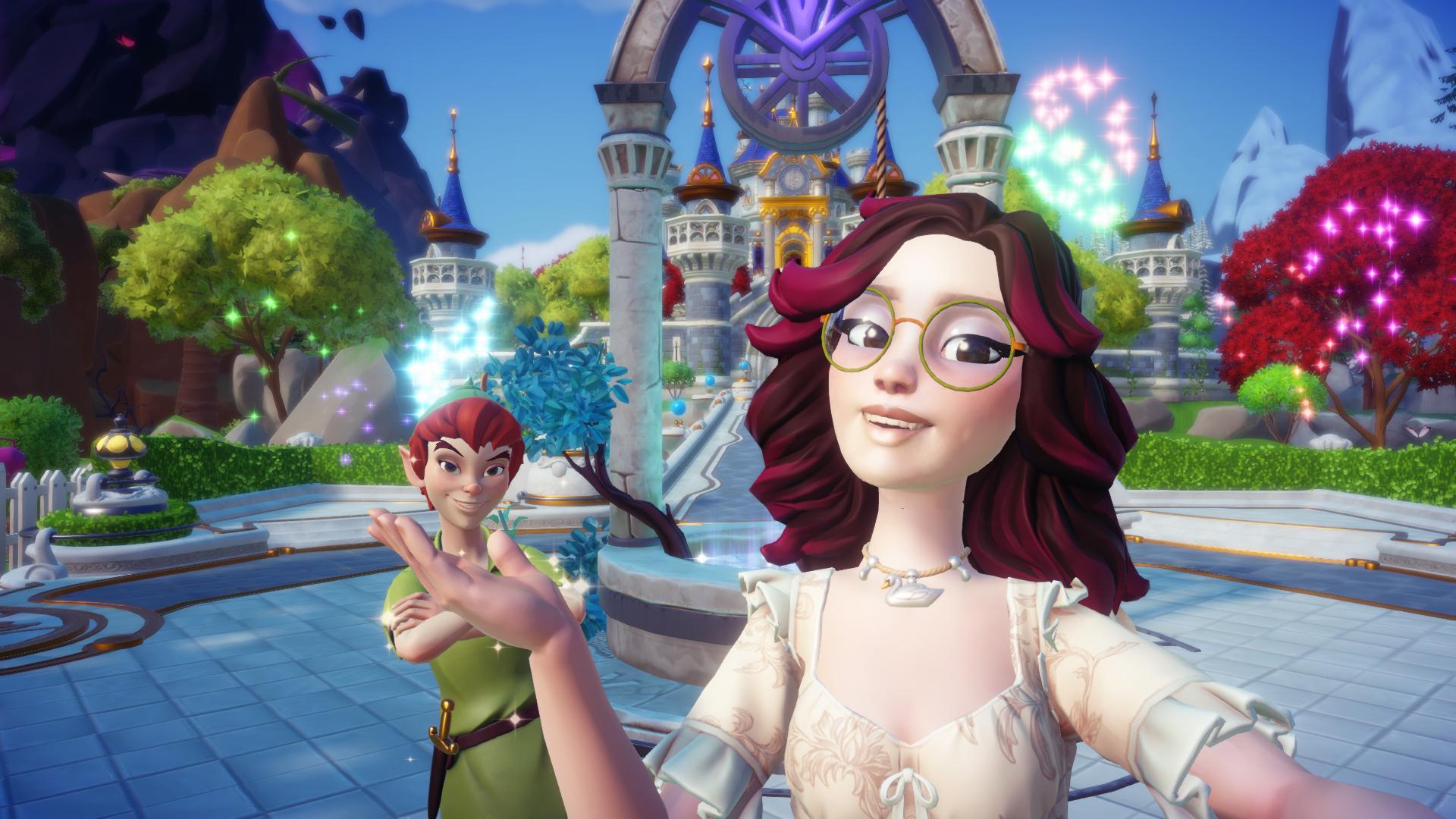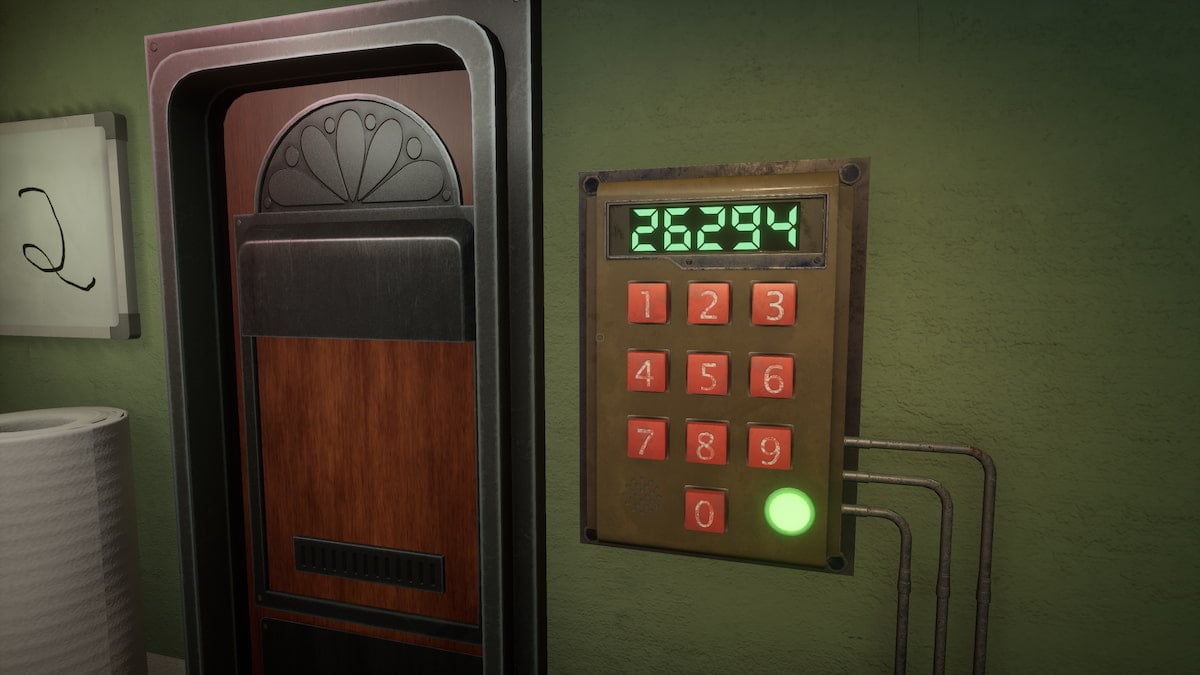
Like many, I’ve been waiting for a truly excellent Harry Potter game since I was in the third grade. In that time, we’ve gotten some respectable LEGO Potter games, an underwhelming EA Sports Quidditch game for some reason, and even suffered through the fevered nightmare that is Harry Potter Kinect. But none of these has come close to fulfilling that fantasy of receiving a Hogwarts admission letter that opens the door to a secret world. With Hogwarts Legacy, I’m happy to say that we finally got a Harry Potter game that captures some of that magic. Its open world map absolutely nails the vibe of Hogwarts School of Witchcraft and Wizardry, it has spellcasting combat that’s stupefyingly good, the characters that inhabit it are charming and unforgettable, and it is positively brimming with countless diversions to soak up dozens of hours of your time. It may not be the most impressive technical achievement and it is certainly cursed with a lack of enemy variety, but none of Hogwarts Legacy’s issues can cast a Descendo charm on this triumphant visit to the Wizarding World.
Right in line with most Harry Potter tales before it, Legacy’s plot has more holes than a fishnet stocking and sorta just expects you to accept that its magical world makes no sense. This mystical third-person action-adventure RPG begins with you transferring to Hogwarts as a fifth-year witch or wizard (for unexplained reasons) to do everything from attending classes to fighting giant spiders with a magical stick to flying around on a hippogriff. The fantastic character creator has plenty of options for you to craft your ideal witch or wizard (apart from a fairly limited voice selection), and as soon as you do they’ll immediately become entangled in a conflict between the Wizarding World and an evil goblin. On top of that, because being in a secret society of wizards is apparently not exciting enough, you soon discover that you’ve got some freaky super-charged magical abilities that allow you to do extra cool stuff that also isn’t really explained.
If you’re like me, you’ll roll your eyes during moments when you’re introduced to 100 years’ worth of dead characters lecturing you from paintings about the importance of some stuff that happened a long time ago and how you have to save the world or whatever. But once that’s over with Legacy mostly redeems itself with a fantastic cast of non-painting characters that help boil things down into a not-too-convoluted good-guys-versus-bad-guys conflict that ends up being an enjoyable tale, even if it’s not particularly profound or original.
Most characters are memorable and instantly endearing.
The characters you’ll spend most of your time with are the classmates who will befriend you on campus, accompany you on certain quests, and help you hone your abilities as a magic user. Most are memorable and instantly endearing, like Sebastian the cocky and morally pliable Slytherin, or Natsai the clever and unflappable Gryffindor, and spending time with them and improving your social links through their relationship questlines made my stay at Hogwarts all the more enjoyable.
Concerning J.K. Rowling
The elephant in the room with Hogwarts Legacy is Harry Potter’s creator, J.K. Rowling, whose comments about transgender people in recent years have left a sour taste in the mouths of many current and former Potter fans, both at IGN and in the world at large. This has driven some to call for a boycott of the Wizarding World altogether – including Hogwarts Legacy, though Rowling was not directly involved and there are good reasons (both in-game and out) to believe the developers at Avalanche don’t necessarily share her views. Regardless, IGN has always and will continue to champion human rights causes and support people speaking with their wallets in whatever manner they choose.
As critics, our job is to answer the question of whether or not we find Hogwarts Legacy to be fun to play and why; whether it’s ethical to play is a separate but still very important question. So just as in virtually all cases, we’re choosing to expose and address the views of the franchise creator separately from our consideration of the work of the hundreds of game developers and evaluate Hogwarts Legacy as it stands, leaving behind-the-scenes context to be considered in addition to that evaluation, rather than in place of it, so that it can be weighted according to your own values.
Unexpectedly, I even found myself looking forward to hanging out with my professors, whether it was my main man Professor Fig, who serves as both something of a mentor and as a sidekick, or the wise-cracking charms teacher Professor Ronen, who made me love him mostly by making fun of me. Each of these characters feels like an indispensable piece of the school, and you can find them wandering the halls doing their thing and choose to spend time with your favorites. It’s a huge and important part of the Hogwarts fantasy that Legacy just knocks out of the park.
The world is packed with nearly everything I wanted in a Potter game.
Even better, though, is the world itself, which is just packed with nearly everything I wanted in a Potter game and more. You’ll find yourself exploring Hogwarts’ stone-cobbled halls and secret passageways, flying around the Forbidden Forest on a broomstick, and exploring dark caves lit only by the glow of your Lumos spell. The developers at Avalanche have so brilliantly captured the look and feel of the Wizarding World that I was amazed at just being there, no matter what trivial errand they had me wrapped up in.
That immersion can occasionally be broken by Legacy’s dicey performance, though, which suffered from just about every issue that makes IGN’s performance review team cry during my time playing on PlayStation 5. Those greatest hits include framerate inconsistency, weird issues where the lighting switches from too dark to too bright, aggressive pop-in while moving around the map quickly, and more. There’s even this weird thing where every door in Hogwarts has a brief loading screen. It’s understandable since there’s so much packed into this beast of an adventure, but the PS5’s promises of the death of loading screens haven’t quite been lived up to here as it’s clearly struggling to keep up with the spellcraft and whimsy of the Wizarding World.
Beyond the performance issues, Legacy is also a fairly glitchy adventure in general. You’ll probably fall through the map a time or two, or see a character or object get caught in the environment, or maybe even have the person you’re talking to just up and walk away from you in the middle of a conversation, leaving you to speak with the empty spot they were standing in for about two minutes. I didn’t encounter anything game-breaking or so common that you’ll likely want to curse its name, but things like this do happen enough to be an irritation.
Combat is fantastic, challenging, and utterly captivating.
As someone who finds the wand-whipping combat in the movies fairly dull, I was very concerned about Hogwart Legacy’s ability to keep my attention after slinging spells for dozens of hours, but I can admit when I’m wrong – the combat is fantastic, challenging, and utterly captivating. There’s a lot more to it than shooting balls of light out of a stick! Instead, the trick is in dodging and countering enemy attacks while pulling off creative combos. For example, you can pull enemies towards you with Accio, light them on fire with the close-range Incendio, then blow them away with the explosive Bombarda spell. Chaining together abilities to make your opponents look like complete fools never stops being amusing, especially as you unlock talent tree perks that enhance your skills with modifiers that make your elemental spells fork to nearby enemies or transform into AoE attacks.
Many of the combat encounters are legitimately challenging too – I’ll admit I died my fair share of times while trying to show off a new set of spells or neglecting to see the goblin sneaking up behind me. Improving your skills and figuring out which spells work best for you is a really entertaining process, filled with experimentation and the occasional maiming. There’s even a perfect parry mechanic, which begs to be mastered by tryhards like me looking for that extra dopamine hit that comes from a timely block at the last possible second. You’ll also be forced to change up your tactics regularly, since many enemies have color-coded shields that can only be broken by spells of a particular type. For example, enemies with a red shield won’t be damaged until you hit them with a fire-based spell, which means you’ll need to keep a few of those handy.
Shielded enemies regularly force you to change your tactics.
While the combat system never stops being entertaining, the creatures you fight soon run out of tricks up their sleeves. You’ll see the same familiar faces a lot, as you spend an enormous amount of your time fighting dark wizards, spiders, and goblins. Every once in a while they’ll trot out the same repeated troll enemy or nondescript magical suit of armor as well, but the enemies Legacy throws at you wear thin pretty quick.
That’s a shame, since the Harry Potter universe is known for having all manner of beasts and villains to face off against, and yet here there’s practically no variety. What’s especially weird is that it’s not like there aren’t other enemy types to be found in Legacy – you’ll find giant, evil frogs and zombies roaming about, to name a few – it’s just that they’re scarcely used in any of the main dungeons or levels. Instead, they send about 500 spiders at you in a row, which is a baffling decision.
Because you can only have so many spells equipped at any time, the one part of combat that’s a bit of a drag is the somewhat clunky process for switching between, which takes some serious getting used to. You learn quite a number of spells by the end of the roughly 30+ hour campaign and constantly have to reslot which ones you’ve got equipped; keeping them organized and committed to memory becomes a challenge in its own right, and not the kind I relish.
When you’re not lighting spiders on fire, you’ll need some lighter activities to spend your time with, and it’s actually kind of crazy just how many side tasks Legacy gives you! You could spend hours decorating your very own personal space in the Room of Requirement; go around catching, grooming, and breeding all manner of fantastic beasts (if you know where to find them); practice your gardening or potion making; go shopping in Hogsmeade; become a champion duelist in an underground dueling ring with your classmates; or even go full Voldemort and decide you want to become a master of the Dark Arts by learning the Killing Curse and other unspeakable acts (which goes about as well as you’d expect if you choose to pursue it). It’s not just easy to waste dozens of hours goofing off – I found it downright difficult to not get distracted by a dozen things and forget what I’d originally set out to do. I was able to get through the main story in 32 hours, but even though I was in something of a hurry to complete it I found staying on task almost impossible. As soon as I finished I immediately went back to do more side quests and continue exploring (which you can do freely after finishing, since there doesn’t appear to be a New Game+ mode currently).
I was able to get through the main story in 32 hours.
I will say though, with the wizarding buffet of endless ways to waste your time, it’s a pretty glaring omission that Quidditch is nowhere to be found. The lore reason for a lack of the iconic broom-based sport is that it’s been banned for one year thanks to some pureblood wimp who got injured last year, but that feels like an effort to paper over the absence of a major aspect of Harry Potter’s time at Hogwarts that the developers must’ve just not had time to include.
One of the ways you can completely forget about the looming goblin threat in the main story is by engaging in the over 100 side quests that are packed into the adventure. Not all of these diversions are equally entertaining – some are definitely your basic “go here and kill/collect this thing” errands that do little more than burn some time – but many feature one of the aforementioned awesome characters asking for you to solve their problems or help them get into good ol’ fashioned mischief. Those are especially great reasons to slow down and immerse yourself in this world, like when you go to class to learn how to pot plants that try to eat you or help a classmate who’s getting picked on. Legacy just gives you lots of reasons to drink in the experience of being a student at Hogwarts, and the novelty of that doesn’t wear off even when you’ve been sent on some meaningless fetch quest.
Legacy gives you lots of reasons to drink in the experience of being a student at Hogwarts.
It also helps that you’re often appropriately rewarded for your efforts, whether that’s earning some gear to upgrade your stats, cosmetic items to improve your swagger, or best of all: new spells, the ultimate carrot in a game where you’re often limited only by what magic you know how to cast. For example, one sidequest gives you the Alohomora spell, which – in classic Metroidvania fashion – allows you to literally unlock doors and get into places previously inaccessible to you. Collecting spells goes a long way to opening up the map and giving you a better bag of tricks during combat, and I found myself positively thirsting for as many of these game-changing abilities as I could get my grubby paws on.
The gear that you’ll find doesn’t really allow you to create full-on “builds” per say, but you’ll gain some resistances and buffs to your character and can spend some time upgrading and modifying your best items for minor improvements. None of it is particularly game-changing stuff, but it managed to capture my attention enough for me to spend a good chunk of time looking at my equipment. Of course, the real loot game is about the cosmetics, a fact that Legacy seems to be keenly aware of since they find ways to hide cool-looking clothes all over the place. These items don’t have any gameplay impact, but pimping out my Slytherin legend to outshine all the kids from the lesser houses is more than enough of a motivation. Best of all, you can overwrite the appearance of any gear you’ve got equipped with the look of anything you’ve acquired so far, which is just fantastic.
However, if you’re as much of a loot hoarder as I am and were hoping to gather up all the treasures in the world and dump them in a closet like in Skyrim you’ll be painfully disappointed by Legacy’s abysmal inventory space, which only lets you hold a couple dozen items and aggravatingly fills up in no time at all. This means you’ll miss out on tons of items early on unless you go to your menu and decide which precious treasure to throw overboard every time you open a chest. Later on you can upgrade your inventory ever so slightly, but even then it never stops being a major pain in the cockatrice to juggle your inventory all the time.





